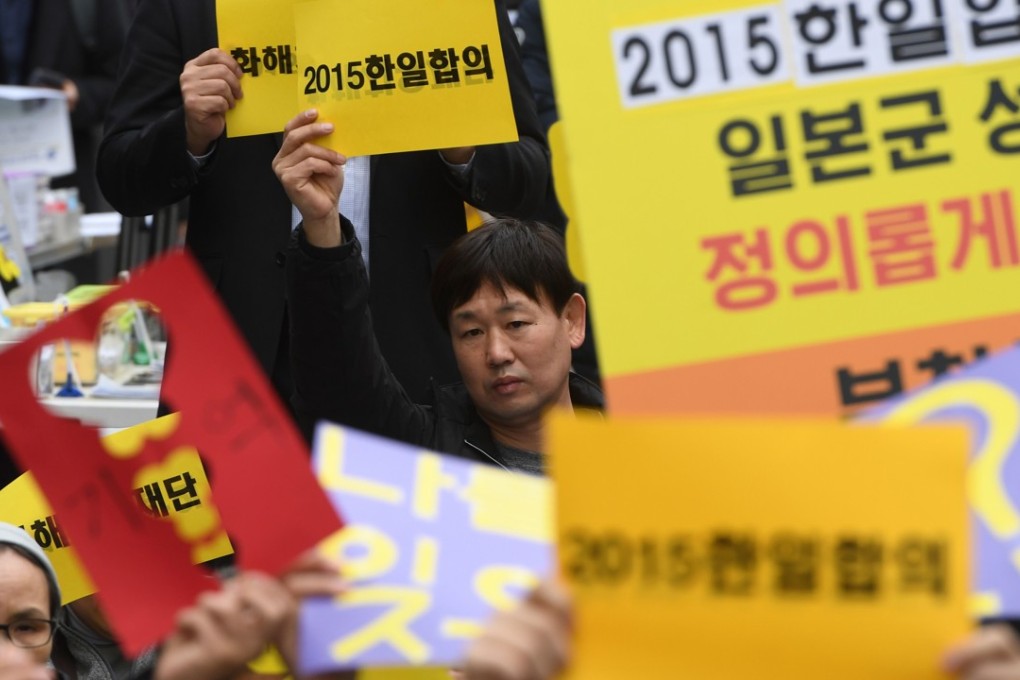Fury as ‘comfort women’ and ‘forced labour’ definitions are changed by The Japan Times, amid concern that it is bowing to rightwing pressure over country’s WWII history
- The paper says not all comfort women were sex slaves, and not all Korean workers forced into labour – sparking anger among staff and readers
- The move comes amid concern over rightwing pressure to change perceptions of Japan’s actions in the second world war

Japan’s oldest English-language newspaper has sparked anger among staff and readers after revising its descriptions of wartime sex slaves – also known as “comfort women” – and forced labourers from the Korean peninsula.
In a decision that critics said aligned it with the conservative agenda of the prime minister, Shinzo Abe, The Japan Times said that it had used terms “that could have been potentially misleading” when reporting on the contentious subjects.
It was the latest media row about how to define notorious parts of Japan’s wartime record.
The paper, which marked its 120th anniversary last year, said in an editor’s note carried in Friday’s edition that it would alter its description of the so-called comfort women – a euphemism for tens of thousands of girls and women, mainly from the Korean peninsula, who were forced to work in Japanese military brothels before and during the war.

The paper noted that it had previously described the victims as “women who were forced to provide sex for Japanese troops before and during second world war”.